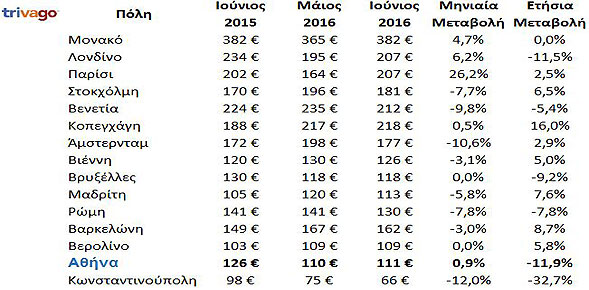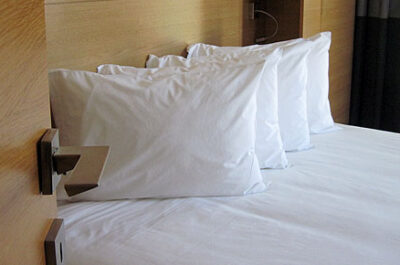A fourth year of accommodated demand in excess of the pre-recession peak of 11.3 million room nights. An occupancy level of 64.6 percent, the highest level of occupancy since 1995.
ATLANTA, GA. – According to the recently released June 2014 edition of PKF Hospitality Research, LLC’s (PKF-HR) Hotel Horizons forecast report, the U.S. lodging industry will achieve an occupancy level of 63.6 percent in 2014, topping the pre-recession peak of 63.1 percent reported by STR, Inc. (STR) in 2006. Given this favorable balance between supply and demand, R. Mark Woodworth, president of PKF-HR predicts that hotel owners and operators will begin to see real (inflation adjusted) recoveries in average daily rates (ADR) and net operating income (NOI).
“The domestic hotel industry is operating at peak performance. We can stop using the term ‘recovery,’” Woodworth said. “The U.S. lodging industry is at a place in the business cycle where a confluence of market and operational factors will lead to impressive performance on both the top- and bottom-line. In 2014 and 2015, our firm is forecasting several all-time highs for some of the most important metrics in the hotel business.”
By year-end 2015, PKF-HR projects that the U.S. lodging industry will have achieved the following milestones:
- A fourth year of accommodated demand in excess of the pre-recession peak of 11.3 million room nights.
- Six consecutive years of increasing occupancy, the longest such streak since 1988.
- An occupancy level of 64.6 percent, the highest level of occupancy since 1995.
- 15 of the 55 markets in the Hotel Horizons universe will achieve their highest occupancy levels in the past 25 years.
- Five consecutive years of real ADR growth, leading to a full recovery in real terms from pre-recession levels.
- Six consecutive years of real revenue per available room (RevPAR) gains.
- Six consecutive years of real NOI gains, leading to a real recovery from pre-recession levels.
“Most everyone is enjoying the benefits of life in the sweet spot. However, it is natural for people to begin to worry about their ability to sustain such peak performance,” Woodworth stated.
An Absence of Obstacles
To assess how long the U.S. lodging industry will be able to maintain the current elevated levels of operating performance, PKF-HR examined the factors that derailed industry performance in the past.
“A review of past lodging cycles reveals that five events, either on their own or in some combination, have brought an end to the good times,” said John B. (Jack) Corgel, PhD., the Robert C. Baker professor of real estate at the Cornell University School of Hotel Administration and senior advisor to PKF-HR. “Fortunately, some of the factors that have historically triggered the turning point at which cyclical declines commence appear benign, while other factors are entirely unexpected.”


An analysis of these phenomena, along with an assessment of the prospects for their near-term recurrence, follows:
- The Economy: Although the initial quarter of 2014 reflected essentially no economic expansion, most leading prognosticators expect above-trend growth for the balance of this year and the next. Thus, the economy does not appear to be a near, or even mid-term, threat to the good fortunes of U.S. hotels.
- Oil/Energy Price Spike: Domestic energy production in the U.S. is at an all-time high, and experts believe that American dependency on foreign sources will continue to decline. Price volatility brought on by global unrest, most notably in the Middle East and Russia, has escalated oil prices heading into the 2014 summer travel season. Most experts, however, do not expect continued high price increases to persist. Therefore, a threat to the health of the U.S. hotel industry does not appear imminent.
- Asset Bubble: While home prices continue to improve, they remain well below previous peaks in the vast majority of markets. The stock market may be a different matter. Mid-way through Q2 2014, the market is at an all-time high. Will the on-going tapering of the Federal Reserve’s monthly bond-buying program cause a severe downturn in equity markets and thus damage the economy? Hard to tell, but most do not seem to think so. As such, no apparent threat here.
- Overbuilding: History tells us that too many rooms, too soon, also can bring an end to prosperous times for hotels. On a four-quarter moving average basis, supply growth peaked at 3.0 percent in Q1 2009, a full point above the STR historical, long-run average. Our current Hotel Horizons forecast calls for supply growth of 1.0 percent in 2014 and another 1.3 percent increase in 2015. Therefore, it does not appear that overbuilding in the near term is a threat.
“The one detrimental factor we cannot anticipate is an unpredictable demand shock,” Woodworth said. “The events of September 11, 2001 and the depth of the Great Recession clearly demonstrated that the impact of these types of phenomena on lodging demand and operating profits occurs quickly and can be devastating.”
Reap the Benefits
“We have enough experience and data to know that the hotel industry is a cyclical business. However, at this time in the cycle, our forecasts have proven to be most accurate, and all we see for the foreseeable future is a period of persistent, positive performance. This consistent, predictable and profitable environment offers all industry participants ample opportunities to make money during the next few years,” concluded Woodworth.
Vicky is the co-founder of TravelDailyNews Media Network where she is the Editor-in Chief. She is also responsible for the daily operation and the financial policy. She holds a Bachelor's degree in Tourism Business Administration from the Technical University of Athens and a Master in Business Administration (MBA) from the University of Wales.
She has many years of both academic and industrial experience within the travel industry. She has written/edited numerous articles in various tourism magazines.



















































































































































































































